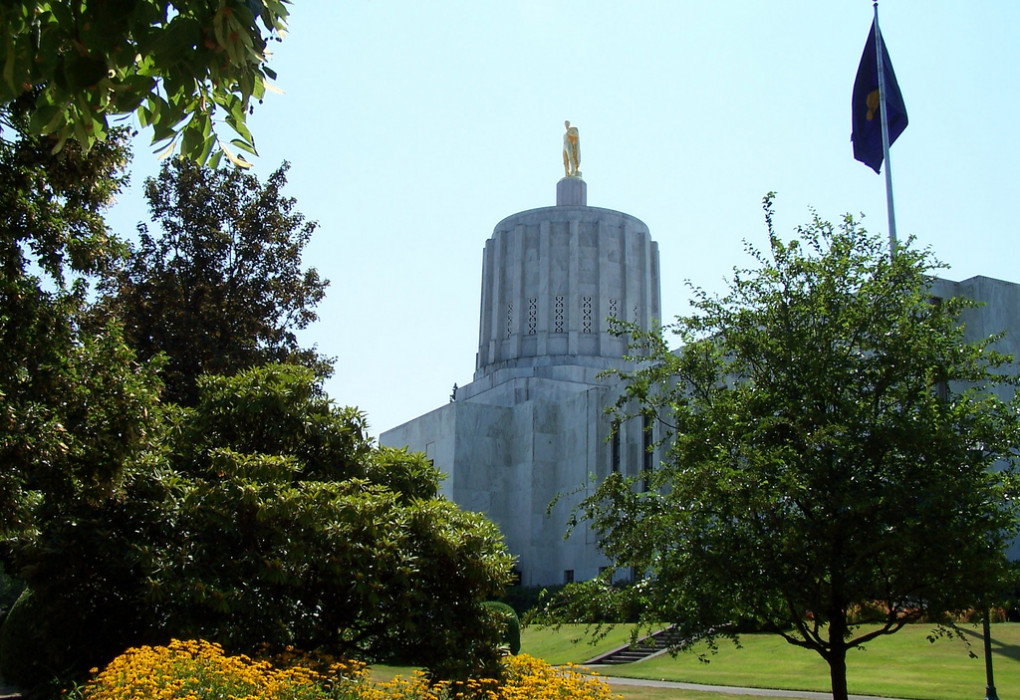Oregon Legislative Update: The Good, The Bad, and The Ugly
The Oregon legislature is halfway through its biennial session and wild fish and water conservation advocates have been working hard to maintain existing programs and make gains that will contribute to reviving abundant wild fish, free-flowing rivers, and thriving local communities. Here’s an update on where things stand on a few crucial issues so far.
Improving ODFW’s ability to manage invasive fish species.
HB 2966A will provide ODFW with long-needed management authority to allow anglers to remove invasive fish species that are impairing the conservation and recovery of native fish. In particular, this bill will make it possible to truly implement a new no-size, no-bag limit on bass and remove requirements that bass and walleye be returned to waterbodies during angling tournaments. HB 2966A has already cleared the house and looks to have smooth sailing ahead through the Senate.
Fighting to maintain proportional representation on the ODFW commission.
Due to Oregon obtaining a sixth congressional district, ODFW’s commission structure must be updated. NFS and our conservation partners are pushing for a simple fix: select one commission member from each of the six congressional districts and have one at-large position. However, there are strong efforts underway to completely scrap the proportional representation offered by the existing model in favor of a new “water basins” approach (HB 3086). While representation by water basins has a nice ring to it, the proposed boundaries don’t have any ecological basis that is applicable to the work of the agency, but rather seek to undermine conservation gains being made by the current commission structure. NFS and our allies will continue to advocate strongly for proportional representation in order to ensure each commission seat has a large and diverse pool of potential applicants to draw from.
Willamette wakeboats trying to make waves, again.
Last year, NFS and our conservation partners scored a major win for the Willamette and wild fish when we secured provisions that prohibit the generation of large wake surfing waves in the Newberg pool. These waves have wrought havoc on the river’s banks and near-shore ecosystem and can cause young salmon and steelhead to be stranded on the shore. But opponents of this effort have revived the issue, seeking to undo the gains that have been made and open the Willamette to wakes once again. We will continue to defend the important conservation gains that have been made by opposing HB1071.
Habitat mitigation masquerading as restoration.
HB 2206A is seeking to create a new mitigation scheme in which “salmon credits” from restoring currently degraded agricultural lands can be utilized to offset habitat destruction for development. Bill proponents are touting it as restoration that enables farmers to “grow salmon.” But the bill has several fatal flaws including enabling destruction and mitigation projects to take place in different watersheds, no guarantees that mitigation projects will be functional into perpetuity, and potential conflicts with existing federal regulations. The bill has passed out of its first committee, so we are now advocating in the next venue (the Ways and Means Committee) against this bill and its hefty price tag.
Advocating for post-fire watershed restoration project grant funding.
During the last biennium, the state allocated $27 million for post-fire recovery and drought relief emergency funds for watersheds impacted by the Labor Day wildfires in 2020. These funds have been allocated as grants to projects undertaking large-scale watershed restoration efforts including NFS’ major restoration projects in the Molalla River. Many of these projects are underway but will not be completed by the end of the current fiscal year because there are specific in-water work periods when restoration activities can legally take place. This in-water work period is established so as to avoid unintentionally killing wild, native spawning fish or crushing their redds. But under current budget allocations, unexpended grant funds will expire at the end of June. NFS and our conservation partners are working to ensure that these already dedicated funds don’t sunset before these important restoration projects are completed.
We would like to recognize the efforts of several of our key conservation partners who have been vital to advocating for wild fish and water protection this legislative session including: Trout Unlimited, Wild Salmon Center, The Conservation Angler, WaterWatch of Oregon, and the Oregon Conservation Network.
